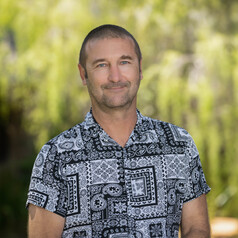
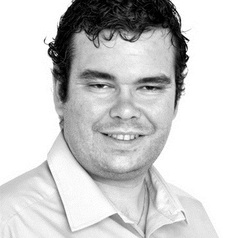
Mike Finn
Principal Teaching Fellow, University of Warwick
My current research focuses on contemporary British politics and the political economy of the post-war British state. I maintain an interest in education policy, specifically the politics of higher education, which was the subject of my doctoral dissertation. My forthcoming monograph on the role of Anthony Crosland’s contribution to the politics of post-war British education policy begins a critique of state intervention in education within the context of a ‘moral economy’ of social fairness in the post-war period. This will be followed by a second book, The Birth of the Knowledge Economy, which interrogates the political economy of the post-war state in relation to British higher education. The two books taken together will offer a significant new interpretation of post-war British educational politics and its place in the wider life of the nation.
I have previously researched and published on a wide range of topics including the social history of the First World War, the politics of constitutional reform, contemporary education reform and the tenure in office of the coalition government between 2010 and 2015. I am currently working with Professor Matt Qvortrup (Coventry) and Professor Gillian Peele (Oxford) on a project analysing the politics of the forthcoming referendum on Britain’s membership of the European Union. I am also editing a forthcoming special section of the Political Quarterly on the role of history in the British political present.
I was born in Liverpool, where I studied for my first degree, receiving a BA in History from the University of Liverpool. An MPhil and PhD in History at Magdalene College, Cambridge followed, and I spent a year at Harvard University as Kennedy Scholar in History. I also read BA Theology at Exeter College, Oxford, specialising in the study of Islam and Catholicism. I have taught widely in universities, teaching History and Politics at both Oxford and Cambridge, Politics, Political Science and International Relations at the London School of Economics (for the Hansard Society) and in the Department of Political Science and International Studies at the University of Birmingham. I also taught education at a number of institutions, and was the founder of the Centre for Education Policy Analysis.
I worked in Westminster politics for a number of years as a speechwriter and political adviser, and I also have a background in journalism. My research draws on this diverse range of experiences; my writing of political history/contemporary political analysis is indebted both to my original training as an empirical historian and my subsequent work in politics and the media.
I have appeared in a range of broadcast media, and in May 2015 contributed election commentary to CNN and BBC local radio.
Less ![]()

Mike Johnstone
Security Researcher, Senior Lecturer in Software Engineering, Edith Cowan University
Dr Mike Johnstone is a member of the Security Research Institute and the School of Computer and Security Science at Edith Cowan University in Western Australia where he teaches secure programming. His research interests include secure development methodologies, wireless sensor networks and cloud security. He is currently working on a large co-operative project about privacy-preserving authentication.
Less ![]()

Mike Lockwood
Professor of Space Environment Physics, University of Reading
Mike Lockwood is a Professor of space environment physics at the University of Reading. After completing his PhD in ionospheric physics at Exeter University, UK, he studied the aurora using the EISCAT radars in northern Scandinavia and a wide variety of ESA and NASA speacecraft. He has also investigated space weather effects on humankind's operation systems and the effects of radiation on humans in space. He has determined the long-term variability of the Sun and helped define the implications for space weather and its relevance to Earth's tropospheric climate.
Less ![]()

Mike McDevitt
Professor of journalism and media studies, University of Colorado Boulder
Professor Michael McDevitt teaches courses in political communication, research methods, journalism studies, and opinion writing. He joined the CU faculty in 2001 after teaching at the University of New Mexico. Prior to his teaching career, he worked as a reporter and editorial writer for newspapers in the San Francisco Bay Area. He is the author of Where Ideas Go to Die: The Fate of Intellect in American Journalism (Oxford). Prof. McDevitt is published in journals in communication, political science and education. He is a recipient of the International Communication Association’s Outstanding Public Policy Research Award. He holds a BA in political science from the University of California, Berkeley and a PhD in communication from Stanford. He returned to Stanford in 2015 as a visiting scholar in the Graduate School of Education.
Less ![]()
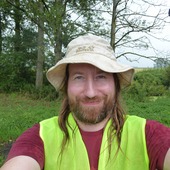
Mike Peacock
Lecturer in Biogeochemical Cycles, School of Environmental Sciences, University of Liverpool
Less ![]()
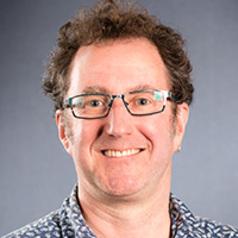
Mike Roberts
Senior Research Fellow in the Collaboration on Energy and Environmental Markets and the School of Photovoltaic and Renewable Energy Engineering, UNSW Sydney
Mike is a Senior Research Fellow in the School of Photovoltaic and Renewable Energy Engineering (SPREE) and in the multi-disciplinary Collaboration on Energy and Environmental Markets (CEEM) at UNSW Sydney. His research aims to address the inter-related technical, economic and social challenges to deploying more renewables and integrating them into the energy system. Mike's particular interests include distributed energy resources (including solar photovoltaics, batteries and electric vehicles), household electrification and demand flexibility, energy resilience, user engagement and behaviour, community energy and energy justice.
Less ![]()
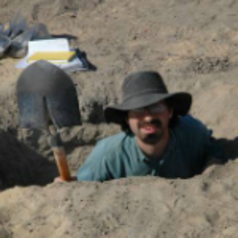
Mike Rogerson
Senior Lecturer in Earth System Science, Northumbria University, Newcastle
Hi! I am a Lecturer in Earth Science and contribute to both our Geography and Geology teaching programmes. I am also Admissions tutor for all the Geography, Geology and Archaeology programmes run out of Geography, Environment and Earth Science, so please get into contact if you have any questions – no matter how small or silly!
I joined Hull as a Research Fellow, part funded by the UK Research Councils. Before then I spent two years as a postdoctoral researcher at the University of Utrecht (Netherlands). I did my PhD at the National Oceanography Centre in Southampton, subsequent to BSc and MSc degrees in Geology and Petroleum Geology at Imperial College, London.
My interests are rather broad, including past climate change, micropalaeontology, carbonate sedimentology and alkaline waste remediation. In all cases, I am interested in the processes causing change and forming products in these systems, and I like to approach them using theoretical and laboratory approaches to address problems identified in the field. Method development is therefore key to what I do, and I am particularly interested in developing physical modelling solutions to a range of geochemical problems from the fate of zinc contamination in upland streams in the UK to the growth and characteristics of carbonate deposits in the Mesozoic of the southern Atlantic.
Where I can, I bring my research into the classroom, enabling me to bring cutting-edge research into the lecture theatre. This is particularly true for my dissertation students, who can find themselves solving problems coming from anywhere from climate science, to metal pollution remediation to petroleum reservoir development. I’m also committed to teaching in the field – Geology and geography.
Less ![]()

Mike Rosenberg
Professor of the Practice of Management of Strategic Management, IESE Business School (Universidad de Navarra)
Mike Rosenberg is a Professor of the Practice of Management in the Strategic Management Department of IESE Business School. His teaching and research focus on strategy, geopolitics and sustainability.
Less ![]()
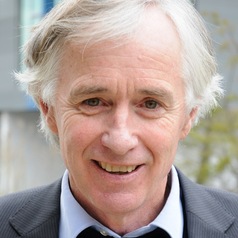
Mike Sandiford
Mike Sandiford is Professor of Geology at the University of Melbourne. His research interests include tectonics, earthquake geology, geomorphology and geothermics. His work on the thermal structure of the Australian crust provides a framework for understanding the extraordinary abundance of Uranium in Australia, and helped promote interest in geothermal energy exploration in South Australia. He has published over 170 peer-reviewed scientific papers and supervised more than 80 young researchers at Honours, Masters, PhD and junior postdoc level. He was recipient of consecutive ARC professorial fellowships (2000-2009), the Mawson Medal from the Australian Academy of Sciences in 2004 (for outstanding contributions to Australian Earth Science), the Hobbs Medal, the Carey Medal and Stilwell Medal (three times) from the Geological Society of Australia. He is a fellow of the Australian Academy of Science and the Geological Society of Australia. He chaired the Science Advisory Framework for NCRIS geoscience capability AuScope. He directed the Melbourne Energy Institute at the University of Melbourne from 2009-2016.
Less ![]()
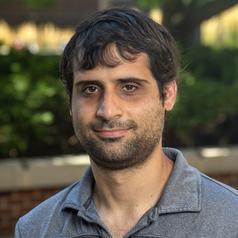
Mike Sori
Dr. Sori and his research group broadly study planetary geophysics of the solid worlds in the Solar System, including Mars, the Moon, Ceres, icy satellites, and more. Specific topics of interest include planetary interiors, volcanism and cryovolcanism, planetary surfaces, and icy processes. Dr. Sori and his group also study how best to conduct future geophysics-themed exploration of our Solar System with spacecraft missions.
Less ![]()
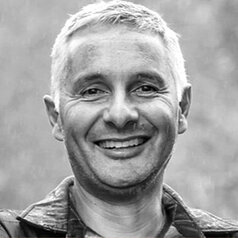
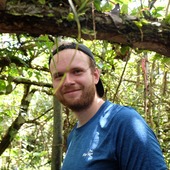
Mike Vreeken
PhD Candidate in Geochemistry, School of Earth Sciences, University of Bristol
Less ![]()
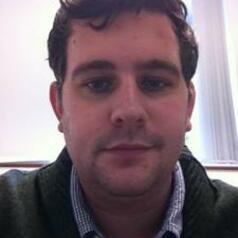
Mike Webster2
Lecturer, School of Biology, University of St Andrews
I’m interested in the behaviour of group-living animals, including social foraging, competition, information diffusion and predator-prey dynamics. What are the benefits and costs of grouping? How do groups form and function? How does the behaviour of individuals shape that of the group, and how does being in a group change the behaviour of its individual members?
Less ![]()
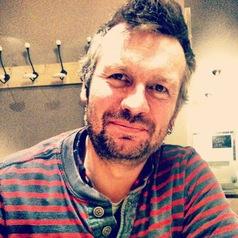
Mike W. Morley
Associate Professor and Director, Flinders Microarchaeology Laboratory, Flinders University
I am a geoarchaeologist with 20 years’ experience working in both academic and commercial environments. My primary area of expertise is the study of archaeological site formation processes and the reconstruction of palaeoenvironments at various scales through the study of site micro- and macro-stratigraphy, geological sequences and geomorphological landforms. I am interested in reconstructing changes in geomorphological systems (e.g., river behavioural change) and the implications of these dynamics on humans (and hominins) living in—and interacting with—these landscapes. I have worked widely in Europe, North Africa (Sudan, Libya), southern Africa (South Africa, Lesotho), Middle East (Oman, Bahrain, UAE, Saudi Arabia) and Southeast Asia (Malaysian Borneo, Vietnam, Indonesia, Myanmar).
Less ![]()
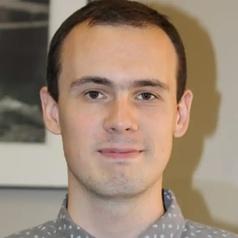
Mikhail Samarin
Lecturer in Geography and Sustainability, University of Tennessee
Mikhail Samarin, Ph.D., is a lecturer whose research focuses on urban and economic geography, housing affordability, housing policy, city planning, real estate markets, and neighborhood change.
Education:
Ph.D., University of Tennessee, Knoxville
B.A. and M.A., Moscow State University
Less ![]()
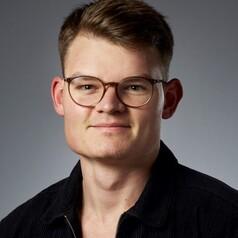
Mikkel Oxfeldt
PhD Fellow, Department of Public Health, Aarhus University
I am currently working as a PhD student at Aarhus University, Denmark, investigating the impact of endogenous and exogenous female sex hormones on skeletal muscle physiology, mainly focusing on low energy availability and oral contraceptives.
In my work, I hope to inspire further research in the field, bridging the gap between scientific knowledge and practical application to enhance understanding of female physiology and its role in exercise performance. The overall goal is to optimize training strategies and promote well-being for female athletes.
Less ![]()
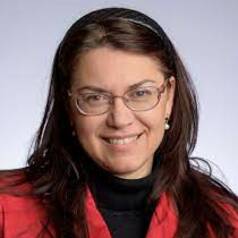
Mila Koeva
Associate professor, faculty of geo-information science and earth observation, University of Twente
Mila Koeva is an Associate Professor at University Twente, International Institute of Geo-Information Science and Earth Observation ITC, The Netherlands.
Her main areas of expertise include Digital Twins/3D modelling, image data acquisition and processing techniques (satellite, aerial, and UAVs), and automatic feature extraction for cadastral mapping and urban planning, among others. More specific, her research focuses is on the implementation of innovative geospatial and machine learning methods based on remotely sensed data in support of 3D urban modelling and cadastral applications.
Less ![]()
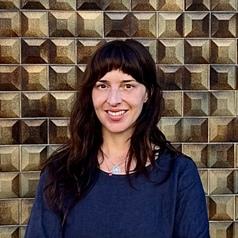
Mila Puccini
Graduate Student, Department of Urban Planning, Wayne State University
Mila Puccini is a Swiss-American interdisciplinary artist and filmmaker and Masters of Urban Planning student at Wayne State University in Detroit, Michigan. For her artistic work, she was awarded multiple grants by the Norwegian Art Council, an artist residency in Oakland, CA, and she contributed to dozens of films and exhibitions in Switzerland, Norway, and the US. In 2015, she was commissioned by the literary organization Quiet Lightning to direct the film “Water Under the Bridge,” a portrait on the city of San Francisco and its multifaceted community, which ignited her passion for urbanism and historic preservation efforts.
In 2021, she relocated from San Francisco to Detroit, where she has dedicated her funded research to cultural & historical preservation, cultural planning, and community development.
Less ![]()
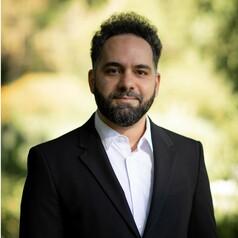
Milad Haghani
Senior Lecturer of Public Safety, Disaster Resilience & Urban Mobility, UNSW Sydney
Milad Haghani serves as a Senior Lecturer at the School of Civil & Environmental Engineering at UNSW Sydney, where he also holds an Australian Research Council DECRA Fellowship. With a foundation in Transport Engineering, he identifies as an interdisciplinary researcher whose work spans crowd safety, road safety, disaster resilience, and urban mobility. His educational activities encompass teaching Human Factors in Civil Engineering at UNSW, in addition to delivering various industry-oriented courses.
Less ![]()
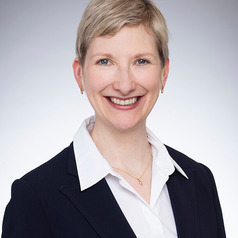
Milena M. Parent
Professor in Sport (Event) Governance, L’Université d’Ottawa/University of Ottawa
Milena M. Parent, PhD, is a Full Professor in the governance of sport systems and events at the University of Ottawa. She is also the Director of the MEMOS (Executive Masters in Sport Organisation Management) Programme, English version. She received a Young Researcher Award from the University of Ottawa (2009) and an Early Researcher Award from the Government of Ontario (2010). She was also named a research fellow of the North American Society for Sport Management (NASSM) in 2009.
She co-authored Managing Major Sports Events: Theory and Practice (2nd edition with Aurélia Ruetsch, Routledge, 2021) and Strategic Management in Sport (with Danny O’Brien, Lesley Ferkins, and Lisa Gowthorp, Routledge, 2019). She co-edited The SAGE Handbook of Sport Management (with Russell Hoye, SAGE, 2017), Elite Youth Sport Policy and Management: A Comparative Analysis (with Elsa Kristiansen and Barrie Houlihan, Routledge, 2017), and The Routledge Handbook of Sports Event Management (with Jean-Loup Chappelet, Routledge, 2015).
Prof. Parent served as the 2001 Games of La Francophonie technical officials’ coordinator and a 2010 Vancouver Olympic Winter Games protocol and language services coordinator.
Finally, she has consulted for several organizations, such as the Sport Information Resource Centre, Office of the Commissioner of Official Languages, and Canadian Heritage/Sport Canada. She currently sits on the Canadian Sport Policy 2012 Policy Implementation and Monitoring Work Group, the Canadian Sport Policy Renewal Work Group, and the Surveillance and Monitoring Work Group.
Less ![]()
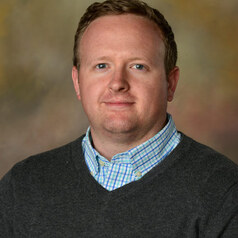
Miles Zachary
Associate Professor of Management and Entrepreneurship, Auburn University
Miles A. Zachary, PhD is an associate professor of management in the Raymond J. Harbert College of Business at Auburn University. His research examines the social and cognitive aspects of organizations that affect strategic behavior, stakeholder relationships, and performance. Specifically, he is interested in how firms and stakeholders communicate with each other and how such communications affect independent and relational outcomes.
Less ![]()
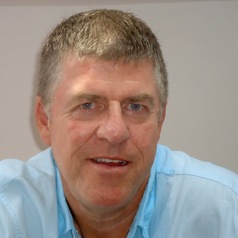
Milford Bateman
Milford Bateman is currently a freelance consultant on local economic development and visiting Professor of Economics, Juraj Dobrila University of Pula, Croatia and Adjunct Professor of Development Studies, St Marys University, Halifax, Canada
Less ![]()

Milica Vasiljevic
Associate Professor of Behavioural Science, Durham University
Drawing on social psychological principles, I investigate how cues in the environment impact health behaviours, and how this knowledge can be translated into effective behaviour change interventions to improve health and reduce inequalities. The bulk of my work to date has looked at how cues such as labelling and advertising affect people’s decisions to eat (un)healthily, drink alcohol, and/or smoke tobacco. Another strand of my research has focused on developing and evaluating interventions to increase societal equality and egalitarianism more generally.
Less ![]()

Milind Tiwari
Research Fellow In Financial Crime, Charles Sturt University
Personal profile
Milind is a researcher and lecturer in financial crime studies at the Australian Graduate School of Policing and Security, Charles Sturt University. Milind has an extensive experience in AML investigations pertaining to customer due diligence, enhanced customer due diligence, and transaction monitoring, among others, and has worked for Big 4, namely, KPMG, EY, and Deloitte, in India and Australia. Milind holds a PhD in money laundering from Bond University (Australia), a Master of Science in Finance from University of Manchester (UK), and a Bachelor of Business Administration from Christ University (India). Additionally, he is a Certified Cryptocurrency Investigator (CCI), Certified Fraud Examiner (CFE) and a Certified Anti-Money Laundering Specialists (CAMS). As a financial crime academic and researcher, Milind’s work focuses on various facets associated with money laundering, including its detection.
Less ![]()
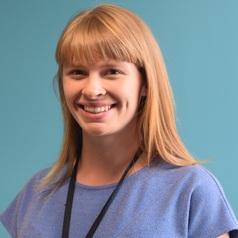
Millicent Weber
Senior lecturer, Australian National University
Millicent joined the School of Literature, Languages and Linguistics at the Australian National University at the start of 2018. Prior to this she was a researcher in Publishing Studies at the University of Melbourne. Her PhD (Monash University, 2016) was a sociology of literary festivals. She has also worked as an archivist at the University of Melbourne Archives and the National Library of Australia. Millicent's first book, Literary Festivals and Contemporary Book Culture, was published by Palgrave Macmillan in 2018.
Less ![]()
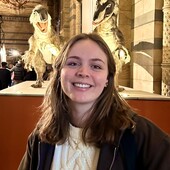

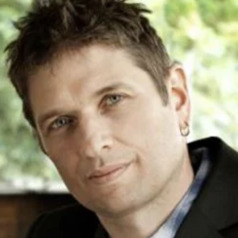
Milton Mermikides
Associate Professor in Music, MMus Programme Director and Deputy Director of the International Guitar Research Centre, University of Surrey
Milton Mermikides is a composer, guitarist and educator in a wide range of musical styles and collaborates with artists and scientists as diverse as Tim Minchin, Evelyn Glennie, Pat Martino, John Williams, Tod Machover, Professor Sophie Scott, Professor Morten Kringelbach, The Swingle Singers, Steve Winwood, Peter Zinovieff and Brian Eno. Son of a CERN nuclear physicist, he was raised with an enthusiasm for both the arts and sciences, an eclecticism which has been maintained throughout his teaching, research and creative career. He is a graduate of the London School of Economics (BSc), Berklee College of Music (BMus) and the University of Surrey (PhD). He has lectured, exhibited and given keynote presentations at the Royal Academy of Music, TEDX, Royal Musical Association, European Sleep Research Society, British Sleep Society, St. Bart’s Hospital, The British Library, Royal Physiological Society, Royal Society of Medicine, British Psychological Society, Hong Kong Academy of the Performing Arts, The Design Museum, Smithsonian Institute, Glastonbury Festival, Charterhouse School, The Science Museum, Manchester Science Festival, Aldeburgh Music, Ableton’s Loop Conference (2017 Berlin and upcoming 2020) and his work has been featured in the Times Higher Education, Oxford Handbook of Computer Music, BBC Radio 4 Midweek, New Scientist, BBC Radio 3 Music Matters and BBC Radio 4 Inside Science. His music and writing are published by Viribus, Deutsche Grammaphon, Mute, Extreme, Cambridge University Press and Oxford University Press, and he has won awards and commendations for writing, teaching, research and his charity work. Milton is Associate Professor in Music at the University of Surrey, Professor of Jazz Guitar at the Royal College of Music, Deputy Director of the International Guitar Research Centre, a Governor of Addison Primary School, and lives in London with his wife, the guitarist Bridget Mermikides and his daughter Chloe.
Research interests
•Data sonification and Data-based composition
•Guitar research
•Technology at the intersection of composition, pedagogy, improvisation, analysis and performance.
•Time-feel (micro- and macro- rhythmic expression)
•Composition analysis, modelling and broad practice (from acoustic, electronic to generative)
•Music notations and illustrations
Less ![]()
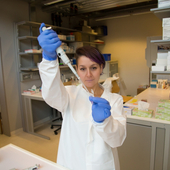
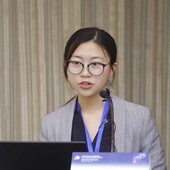

Min Yang
Assistant Professor of Obstetrics and Gynecology, University of Washington
My hope for my lab is to use advanced stem cell models and animal models to study the conditions that affect reproductive and maternal fetal health.
Less ![]()

Min J. Kim
Visiting Assistant Professor at the George Washington University; Visiting Researcher, United Nations University
Min J. Kim is a Visiting Assistant Professor of International Affairs and the Associate Director of the MA program in Security Policy Studies in the Elliott School of International Affairs. She is also an affiliated faculty at the Elliott School's Institute for Korean Studies. In addition to the academic appointment, She serves as a visiting researcher at the United Nations University World Institute for Development (UNU-WIDER).
Her research focuses on political and security issues in border and frontier areas, state-minority relations, and territorial politics.
She holds a Ph.D. in International Relations from American University and an MA in Conflict Resolution from Georgetown University.
Less ![]()
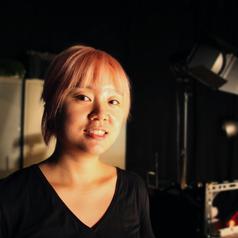
Min Young Oh
Lecturer in Animation, University of Greenwich
Min Young Oh has been working as an animator and animation director in a variety of formats including commercials, independent films, and documentaries. She is an award-winning director and her films have screened at numerous film festivals around the world, including eight Oscar qualifying film festivals. She is interested in storytelling and character development through imagery and movement. Her interests range from experimental animation to high end commercial films. She has been sharing her skills and knowledge with students in different universities around the world and is now settled at the University of Greenwich.
Less ![]()

Mina Kinghorn
Senior Project Coordinator, The University of Queensland
Mina is a non-Indigenous woman and research coordinator who has worked in varying capacities within First Nations health research and curriculum. Her research experiences have focused broadly on cancer and wellbeing, and primary healthcare challenges.
She is passionate about the role of education in health equity and has worked across several projects within the University of Queensland designing and developing new curriculum that integrates Indigenous Knowledges within health-related programs (BEnvSci, MPH, MEpi, MD). Most recently, she completed a pilot course and evaluation for Aboriginal and Torres Strait Islander Health and Wellbeing (INDH7002) which will be the first compulsory First Nations heath course in a Master of Public Health and Master of Epidemiology in Australia (2023).
Mina is currently the Senior Project Coordinator (Services) for the Let’s Yarn About Sleep program.
Less ![]()
- Market Data




















